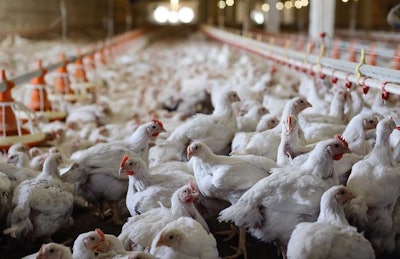
Animal rights groups want to destroy animal agriculture, and the industry needs to be proactive to protect its future.
On February 1, Hannah Thompson-Weeman, vice president of communications for the Animal Agriculture Alliance, spoke about animal rights activism group’s tactics and how the industry can resist them. Thompson-Weeman spoke on behalf of the nonprofit organization charged with connecting consumers with the agriculture industry at the International Production & Processing Expo in Atlanta.
Activists and their tactics
Animal rights activists have changed their tune and their tactics to seem more mainstream and moderate in recent years, but their objective remains the same. Thompson-Weeman said the goal is dismantling animal agriculture by discouraging consumers to buy meat and farmers to raise animals.
Those who doubt the credibility and prowess of the activists groups should look no further than the cage-free movement spurring chaos in the US egg industry. Activist groups are also involved in the push for antibiotic-free production and the emerging slower growing broiler movement. Poultry is a favorite target for activist groups, Thompson-Weeman said, because of its prominent position in the global diet.
Activist groups use four main tactics to advance their agenda: direct pressure on retailers and restaurants; trespassing and breaking into facilities to shoot images and videos; targeting youth and college students through animal-rights focused education programs and using religious organizations to legitimize animal rights doctrine.
The response
1. Do the right thing right now
On the farm, producers need to ensure they are doing everything necessary to provide the best welfare for their animals. That means reviewing company operations and animal welfare policies and finding solutions to possible animal care and handling issues as well as environmental problems.
Thompson-Weeman recommended trying to consider the farm policies from an outsider’s perspective. Farmers need to think about what could be considered a vulnerability and suggested having an impartial third party make an assessment of the operation. If there are any problems that could be potentially exploited by animal rights activists, they should be addressed immediately.
2. Do your homework on new employees
Animal rights groups will sometimes use temporary employment to infiltrate farms and gather damaging information. To prevent this, Thompson-Weeman said farmers need to thoroughly screen all job applicants by checking their references and performing background checks.
Red flags to watch for include:
- Seeking only temporary employment
- The willingness to work for free
- License plates from out-of-state, or other abnormal vehicle registration
- Using college or university identification, or some other unofficial identification when applying
- Inappropriate or excessive qualification of the position
Thompson-Weeman said all suspicious visitors, cars, calls, and applications should be reported to the Animal Agriculture Alliance. The organization tracks the details so it can maintain a database of vehicles, names and other credentials used by activists.
3. Ensure all farm employees are trained on animal welfare practices
Along with putting proactive policies in place, farmers should train all their employees to follow animal welfare guidelines. Additionally, all farm employees should be prepared to answer tough questions about animal welfare and farm practices. The CEO may not always be around, Thompson-Weeman said, and every employee should be prepared for a worst-case scenario.
4. Communicate proactively
Thompson-Weeman said farmers should build relationships with the members of their community, and consumers at large, to educate those outside the industry. Farmers should get to know their local legislators and their local customers before a crisis begins. Farms should also work on being more media savvy and more open to working with the media to explain complex issues to a wide audience. Farms should also get involved in their local community and business clubs. These actions, she said, help establish a level of trust and credibility that will be indispensable when activists groups turn up the pressure.
5. Remove the mystery
Many consumers don’t know about what happens on a farm, leaving a gap for activist groups to paint a negative picture of the industry. Thompson-Weeman said having an online presence – a website, social media account or blog – can provide information and open a communication channel.
Farms can also host an open house or a virtual tour of the operation to literally show consumers what is going on and how animals are treated. She encouraged farmers to get involved in online venues where they can directly answer questions consumers have about their food and farm animal care, such as Reddit’s Ask Me Anything web events.


















